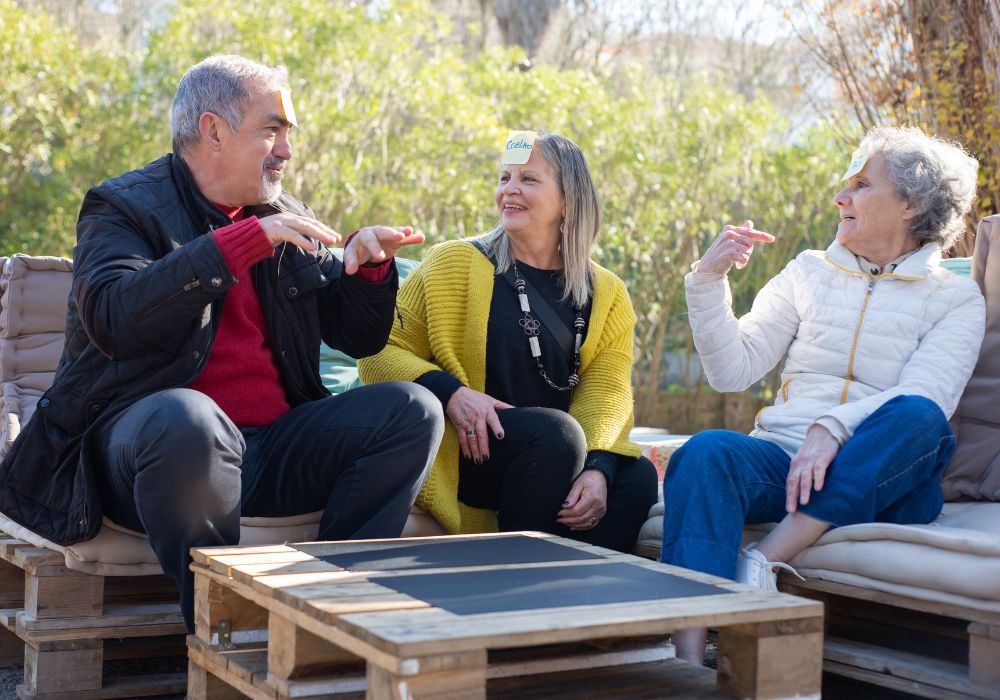
The Emotional Benefits of Senior Socialization at Home
Regular social interaction plays a vital role in maintaining emotional well-being and cognitive health for seniors aging in place. At Comfort Keepers, we've witnessed firsthand how meaningful connections can transform the lives of older adults who choose to remain in their own homes. Let's explore the profound emotional benefits of senior socialization and how it contributes to overall wellness.
The Foundation of Emotional Well-being
Combating Isolation and Loneliness
Social isolation among seniors has become increasingly recognized as a serious health concern. Research shows it can be as damaging as smoking 15 cigarettes a day. Regular social interaction—whether through companionship care or family visits—creates a buffer against loneliness. When seniors engage in meaningful conversations and shared activities at home, they experience increased happiness and reduced symptoms of depression.
Maintaining Cognitive Function
Social engagement serves as a powerful workout for the brain. Through regular interaction, seniors keep their minds active and sharp. Studies from the National Institute on Aging reveal that socially active seniors perform better on memory tests and show slower rates of cognitive decline compared to those who are isolated.
The Power of At-Home Social Connection
Creating Meaningful Routines
Having regular social interactions at home helps establish daily routines that provide structure and purpose. Our Comfort Keepers caregivers incorporate Interactive Caregiving™ principles by engaging clients in activities such as:
- Sharing meals and conversations
- Playing cards or board games
- Working on hobby projects together
- Discussing current events and family stories
- Maintaining cherished family traditions
Emotional Security in Familiar Surroundings
Socializing in one's own home provides a sense of control and comfort that can't be replicated elsewhere. Seniors feel more confident expressing themselves when surrounded by familiar objects and memories. This emotional security often leads to more authentic connections and deeper, more meaningful conversations.
Building Stronger Family Bonds
Enhanced Family Relationships
When seniors maintain active social lives at home, it naturally strengthens their relationships with family members. Visits can focus on sharing experiences and creating new memories rather than solely addressing care needs. This approach helps preserve the natural dynamic between parent and child, maintaining the relationship's emotional richness.
Reduced Family Caregiver Stress
Professional companionship services create a balanced social network for seniors, reducing pressure on family members to be the sole source of interaction. This allows families to enjoy quality time together without the burden of being the only social outlet.
Mental Health Benefits
Improved Mood and Outlook
Regular social interaction boosts production of feel-good hormones like serotonin and dopamine. Our caregivers frequently observe that socially engaged clients demonstrate:
- More frequent smiling and laughter
- Increased interest in daily activities
- Greater motivation for personal care
- Higher levels of optimism about the future
- Enhanced emotional resilience
Stress Reduction
Meaningful social connections help seniors better manage stress and anxiety. Having someone to share concerns with, celebrate achievements, and simply enjoy quiet moments together provides emotional support that significantly reduces stress levels.
Practical Ways to Enhance Social Connection
Technology Integration
While nothing replaces in-person interaction, technology can supplement social connections. Through services like the GrandPad® tablet, seniors can:
- Enjoy video calls with family members
- Share photos and messages
- Play interactive games with loved ones
- Stay connected to community events
- Access news and entertainment
Creating Engagement Opportunities
Our caregivers facilitate social engagement by:
- Arranging small gatherings with neighbors
- Supporting participation in hobby groups
- Assisting with letter writing or email correspondence
- Encouraging regular phone calls with friends and family
- Planning activities that align with personal interests
The Lasting Impact of Social Connection
Research from the CDC confirms that seniors who maintain regular social interactions experience significantly lower rates of depression and anxiety. Social engagement creates a sense of purpose and belonging—fundamental human needs that remain vital throughout life.
Our Interactive Caregiving™ approach focuses on doing activities with clients rather than simply for them. This philosophy creates natural opportunities for meaningful socialization throughout the day, whether through shared meals, engaging games, or enriching conversations.
Supporting Family Involvement
We actively encourage family participation by:
- Keeping families informed about activities and engagement
- Suggesting creative ways to maintain connection
- Supporting family visits and special gatherings
- Helping coordinate celebrations and milestones
- Providing respite care to enable family activities
Your Partner in Senior Socialization
At Comfort Keepers, our trained caregivers understand the importance of social connection. They're skilled at recognizing signs of isolation, creating engaging environments, and fostering both existing and new relationships. Through our comprehensive approach to senior care, we've seen countless examples of how regular socialization brings joy, purpose, and emotional well-being to our clients.
The emotional benefits of senior socialization at home are clear and measurable. Through professional support and thoughtful implementation of social activities, seniors can maintain the connections that make life rich and meaningful while aging comfortably in their own homes.
To learn more about how we can help your loved one maintain active social connections while aging in place, contact Comfort Keepers for a free consultation. Together, we can create a personalized care plan that prioritizes both physical and emotional well-being through meaningful social interaction.
Sources:
National Institute on Aging (NIA)
AARP Research
Centers for Disease Control and Prevention (CDC)









